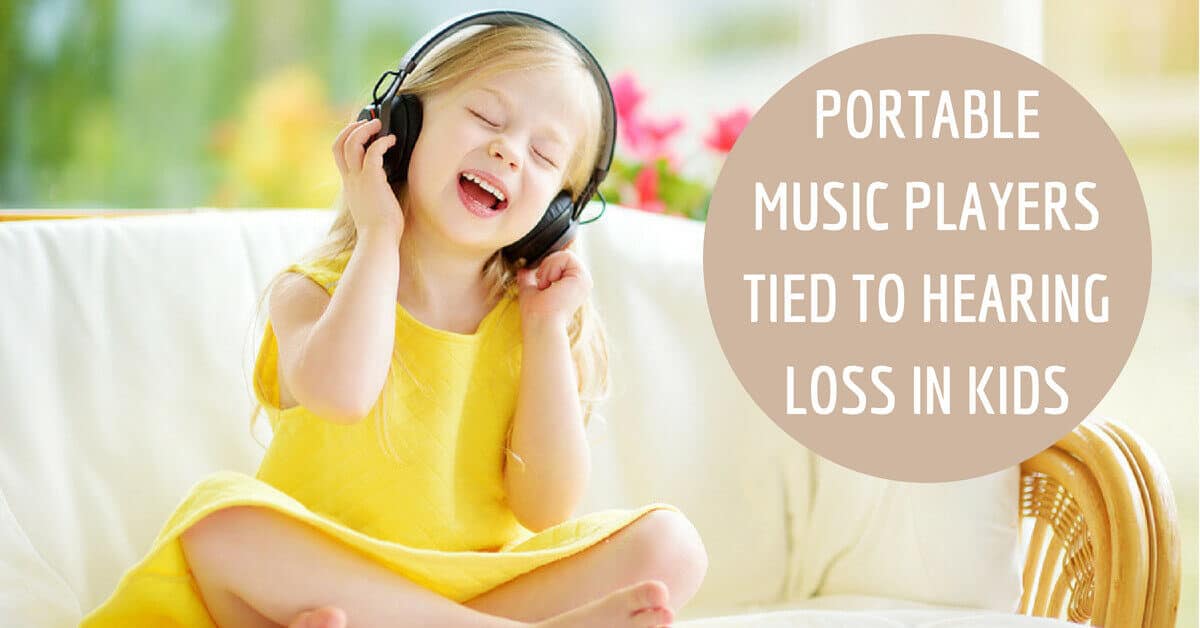Do you have kids? Then you might have noticed that your children never seem to take out their earbuds. From the commute to school to hanging out with friends to doing their homework or playing a video game, they’re constantly flooding their ears with sound. This is worrisome, since many studies have tied portable music players to hearing loss in kids.
Hearing Loss in Children
A recent Dutch study looked at data collected from over 3,000 kids aged 9 to 11. They looked at hearing test scores, asked parents if their children seemed to have difficulty hearing, and analyzed portable music player usage, such as how many hours a day the children listened, and at what volume.
Researchers found that 14% of the children had some high frequency hearing loss! This means that these children had trouble hearing higher pitched sounds, a kind of hearing loss usually seen only in older adults. It’s often the result of exposure to loud noises, and affects adults after a lifetime of working on loud job sites, or being exposed to loud noises during leisure activities.
Noise Induced Hearing Loss
Noise induced hearing loss (NIHL), whether in adults or children, is the result of being exposed to dangerously loud sounds. Usually NIHL is gradual, and our daily activities chip away at our hearing. Sometimes though, it’s possible to suffer from NIHL due to one very loud sound, like an excessively loud rock concert, fireworks, sirens, or even a portable music player turned up too loud. Children are especially susceptible to NIHL, since their developing ears cannot withstand the same level of sound as adults, and they’re more likely to experience damage, either to the ears or the brain.
Those with NIHL have trouble following conversations and concentrating on tasks. Sounds will seem distant or muffled, and its common to experience tinnitus, that uncomfortable ringing or buzzing in the ears only heard when everything around you is silent.
How Portable Music Players Affect Children
The Dutch study showed that kids who listened to music even one or two days a week were more than twice as likely to struggle to hear than children who didn’t use the devices at all. “Although we cannot conclude from this study that music players caused these hearing losses,” said Dr. Carlijn le Clercq, lead author of the study, “it shows that music exposure might influence hearing at a young age.” This is scary, since 9 out of 10 children and teens have some kind of portable music player, and often have unsafe listening practices.
Protect Your Child’s Hearing
It’s important to recognize the risks of using portable music players, and limit your children’s exposure to dangerously loud sounds. “This is important because hearing loss is irreversible and thus has lifelong consequences,” says le Clercq. You need to be vigilant when it comes to your children’s hearing, and be aware of how much they’re using their earbuds or headphones.
The best thing you can do for your child’s hearing health is to limit their exposure to loud noises, especially from their portable music players or smartphones. Set a time limit, and make them take frequent breaks to give their ears a chance to rest.
Make sure you notice the volume as well. Today’s devices can be turned up to extremely dangerous levels. A good rule of thumb is to never allow your child to turn up the volume more than 60%. Some devices come with parental blocks that would allow you to set the maximum volume within safe levels. Not sure how loud is too loud? If you can here your child’s music coming from their ears, it’s far too loud and they risk damaging their hearing.
My Hearing Centers
At My Hearing Centers, we know about children’s hearing health. Your child will enjoy the hearing assessment, wearing headphones and listening for sounds in high and low frequencies. When it comes to hearing aids, we have a wide range of devices designed with children in mind that will help them hear in the classroom, concentrate on their work, and interact with their peers. From muted skin tones to pops of color, they can even personalize their devices, so they’ll be excited to put them on each morning. Visit us today and do the right thing for your child.


